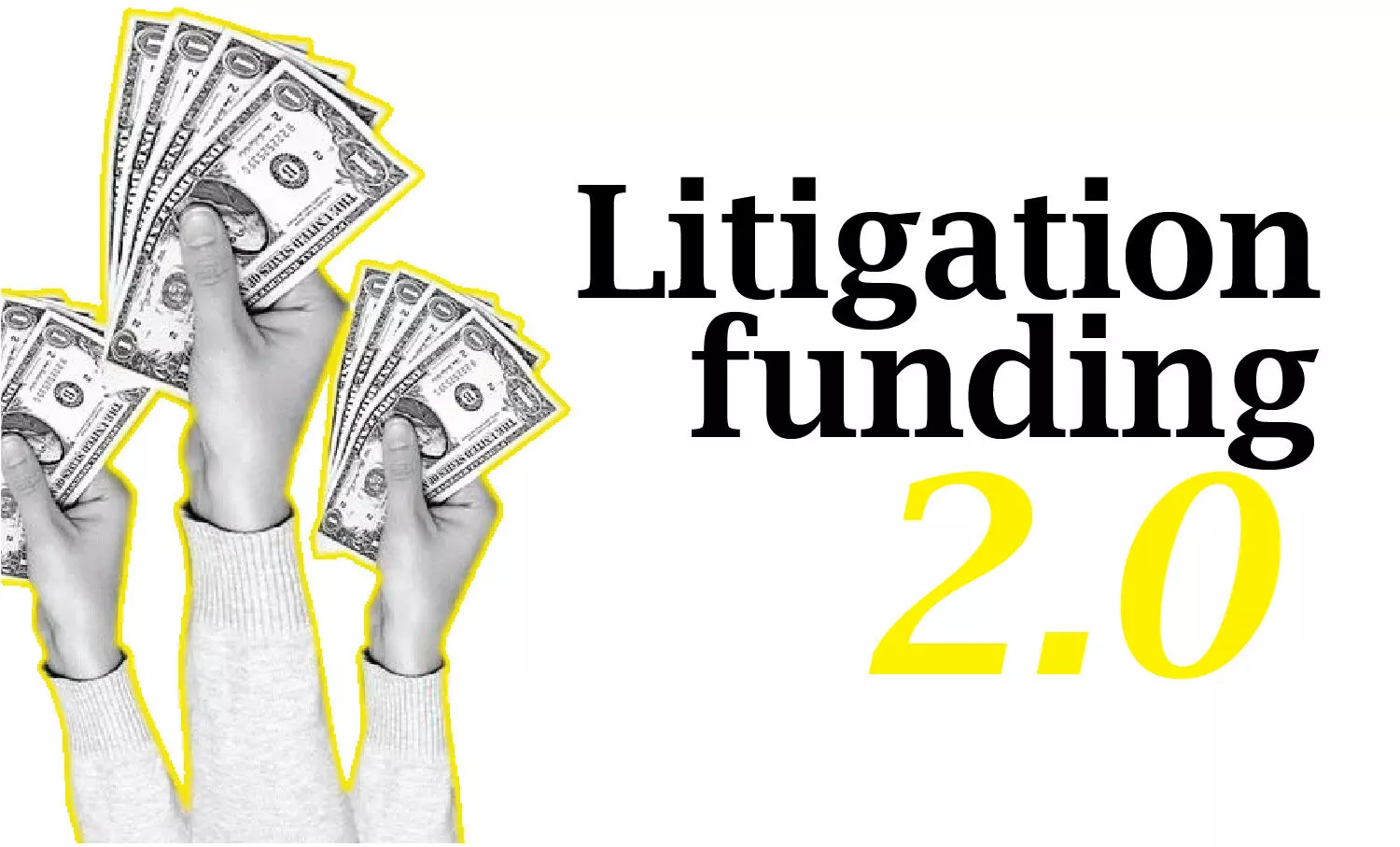- Home
- News
- Articles+
- Aerospace
- Artificial Intelligence
- Agriculture
- Alternate Dispute Resolution
- Arbitration & Mediation
- Banking and Finance
- Bankruptcy
- Book Review
- Bribery & Corruption
- Commercial Litigation
- Competition Law
- Conference Reports
- Consumer Products
- Contract
- Corporate Governance
- Corporate Law
- Covid-19
- Cryptocurrency
- Cybersecurity
- Data Protection
- Defence
- Digital Economy
- E-commerce
- Employment Law
- Energy and Natural Resources
- Entertainment and Sports Law
- Environmental Law
- Environmental, Social, and Governance
- Foreign Direct Investment
- Food and Beverage
- Gaming
- Health Care
- IBC Diaries
- In Focus
- Inclusion & Diversity
- Insurance Law
- Intellectual Property
- International Law
- IP & Tech Era
- Know the Law
- Labour Laws
- Law & Policy and Regulation
- Litigation
- Litigation Funding
- Manufacturing
- Mergers & Acquisitions
- NFTs
- Privacy
- Private Equity
- Project Finance
- Real Estate
- Risk and Compliance
- Student Corner
- Take On Board
- Tax
- Technology Media and Telecom
- Tributes
- Viewpoint
- Zoom In
- Law Firms
- In-House
- Rankings
- E-Magazine
- Legal Era TV
- Events
- Middle East
- Africa
- News
- Articles
- Aerospace
- Artificial Intelligence
- Agriculture
- Alternate Dispute Resolution
- Arbitration & Mediation
- Banking and Finance
- Bankruptcy
- Book Review
- Bribery & Corruption
- Commercial Litigation
- Competition Law
- Conference Reports
- Consumer Products
- Contract
- Corporate Governance
- Corporate Law
- Covid-19
- Cryptocurrency
- Cybersecurity
- Data Protection
- Defence
- Digital Economy
- E-commerce
- Employment Law
- Energy and Natural Resources
- Entertainment and Sports Law
- Environmental Law
- Environmental, Social, and Governance
- Foreign Direct Investment
- Food and Beverage
- Gaming
- Health Care
- IBC Diaries
- In Focus
- Inclusion & Diversity
- Insurance Law
- Intellectual Property
- International Law
- IP & Tech Era
- Know the Law
- Labour Laws
- Law & Policy and Regulation
- Litigation
- Litigation Funding
- Manufacturing
- Mergers & Acquisitions
- NFTs
- Privacy
- Private Equity
- Project Finance
- Real Estate
- Risk and Compliance
- Student Corner
- Take On Board
- Tax
- Technology Media and Telecom
- Tributes
- Viewpoint
- Zoom In
- Law Firms
- In-House
- Rankings
- E-Magazine
- Legal Era TV
- Events
- Middle East
- Africa

Litigation Funding 2.0

Litigation Funding 2.0 Today, it's possible to raise capital from investors to fund litigation, just as you would to expand or acquire a company which removes a formidable barrier to filing asset recovery litigationWhere in the world is Raj? He's that handsome, charming man who just a few months ago was revered as India's latest and greatest genius billionaire. Now, he's gone missing...
To Read the Full Story, Subscribe to Legal Era News
Access Exclusive Legal Era Stories, Editorial Insights, and Expert Opinion.
Already a subscriber? Sign in Now
Litigation Funding 2.0
Today, it's possible to raise capital from investors to fund litigation, just as you would to expand or acquire a company which removes a formidable barrier to filing asset recovery litigation
Where in the world is Raj? He's that handsome, charming man who just a few months ago was revered as India's latest and greatest genius billionaire. Now, he's gone missing and bankers are desperate to find him. They extended Raj massive amounts of credit based on his companies' sky-high valuation and profits. Those numbers weren't real, and with the added stress of the pandemic, the whole business empire just collapsed like a shoddy building in an 8.2 earthquake.

Raj is fictional, but as anyone who's watched the Netflix series Bad Boy Billionaires: India can tell you, the scenario is quite real. India's economic boom spawned many charismatic and attractive entrepreneurs flaunting unimaginable riches.
There are always red flags that bankers and executives overlook in their zeal to close a deal. For example, Raj's incessant private jet travel to London and Dubai, common locales for fraudsters to park their wealth, his opaque corporate structures and related-party transfers. He entertained lavishly at his spectacular homes in these places and sometimes flew along financiers and journalists to party with him.
When a major debtor like Raj crashes, lawyers and investigators go to work. We are among those investigators, heading the London and Mumbai offices of the Mintz Group, a global firm providing asset-tracing and other investigation services on every continent around the world.
A GAME-CHANGER
Reciprocating Territories
Last year began with good news for creditors: India announced in January 2020 that it added the United Arab Emirates (UAE), which includes Dubai as its largest city, as a "reciprocating territory." This makes it easier to enforce judgments across borders - previously a nearly impossible ask. Other reciprocating territories include the UK, Hong Kong, Singapore, Malaysia, New Zealand, Trinidad & Tobago, Fiji, Papua New Guinea and Bangladesh.
This global cooperation is a game-changer for creditors tracing assets in India and the other reciprocating countries. Later in the year, as COVID spread with a vengeance, we found that new deals were down, litigation was up and asset recovery was through the roof – in India and the world over.
Meanwhile, third-party litigation funding picked up its stride, offering another innovative vehicle for asset recovery. Funders are forming Asset Recovery Consortiums – a one-stop shop for aggrieved creditors, with investigators, lawyers, forensic accountants and other professionals.
Given all these factors, we think it is a good time to share a few thoughts on recovering assets, based on our experience tracing them.
INVESTIGATE BEFORE YOU SUE, DURING LITIGATION AND AFTER A FAVORABLE JUDGMENT.
When it comes to litigation, the focus needs to be on recoverability of money, not just the merits of your case. Litigation is both costly and uncertain, especially in multi-jurisdictional cases, and winning is no guarantee of collecting a single penny. Investigation, therefore, is crucial before deciding where and against which entities to litigate. Locating assets, and proving their ownership, is key.
During litigation, you need investigators to gather evidence to support the claim. It's equally important to keep an eagle's eye on assets during lengthy court cases, as otherwise it is inevitable malefactors will dissipate those assets.
Finally, once you prevail in court, you need "boots on the ground" to seize assets, whether they're bank deposits, commodities, property, yachts and aircraft, or in the case of an extradition proceeding, to escort the billionaire bad boy back to justice himself.
KNOWING YOUR ADVERSARY IS KEY
Litigation is akin to a game of chess with the beginning, middle and end game, much like the before, during and after parallel above. Indians invented the early forms of chess around the 6th Century CE, so the analogy seems apt. Both chess and litigation require strategic thinking and maneuvering to outwit your opponent.
Our investigative teams understand the adversary's past behavior, such as corporate structures, jurisdictions of choice, and banking and advisory relationships. The wealthy and powerful entrust a small circle of family, friends and advisors. In bad times, some of those formerly close people become estranged, and may prove useful witnesses and sources.
The middle game encompasses where your adversary currently travels for work and on holiday, their ongoing business ventures and upcoming milestone events, whether it's a daughter's wedding, or a balloon payment coming due.
The end game means predicting your opponent's response to litigation, pre-empting their attempts to move assets, or to flee. It also includes a strategy for creatively but legally circumventing the creditor queue to recover assets before they become tapped out.
MONEY WANTS TO COME OUT TO PLAY AS WELL AS WORK
The leisure trappings of wealth come out in property, art, vehicles, jewelry and lavish lifestyle expenditures. London, New York or Dubai are particularly popular playgrounds for Indian wealth, and that is why Mintz Group have investigators on the ground there to follow the money.
On the work side, our investigators map corporate structures and jurisdiction footprints, and identify asset classes such as fixed assets, machinery, cash, shareholding, transportation fleets, commodities and trade receivables.
MAURITIUS IS SUSPICIOUS
On 7 May 2020, the European Commission listed Mauritius as a "high risk third country with strategic deficiencies in its Anti Money-Laundering and Counter Financing Terrorism (AML/CFT/) regime." In 2015, the EU placed the island among 30 tax blacklist nations; Oxfam listed it as a tax evasion hotspot in 2016; and the 2018 Financial Secrecy Index gave it a 72.3 score out of 100 for allowing questionable tax maneuvers.
THE NEW ROLE OF LITIGATION FUNDING
Today it's possible to raise capital from investors to fund litigation, just as you would to expand or acquire a company. This removes a formidable barrier to filing asset recovery litigation. Potential investors, however, will require detailed explanation of your case as well as your strategy for recovering against the judgment. Once again, this requires the best possible investigative resources on your side.
We find that asset tracing efforts gain momentum around the world each year as creditors find new paths to recovery. As we look back at an extraordinary 2020 and look forward to vaccines, gatherings and in-person court appearances, Raj might try to remain socially distant.
Disclaimer – The views expressed in this article are the personal views of the authors and are purely informative in nature.


